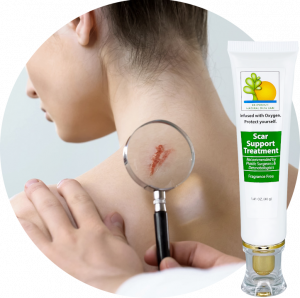Proper care of a scar is critical to its healing process - Scar Support Treatment
Dr Sam Speron, has shared some expert tips on how to look after scars to help them heal and minimize their impact.
CHICAGO, ILLINOIS, UNITED STATES, August 6, 2024 /EINPresswire.com/ -- Proper care of a scar is critical to its healing process. Leading Chicago plastic surgeon, Dr Sam Speron, has shared some expert tips on how to look after scars to help them heal and minimize their impact.A natural part of healing
“The most important thing to remember is that a scar is a natural part of the healing process,” Dr Speron explains. “Whatever the cause, a scar is testament to the body’s incredible ability to heal and regenerate. By working with that process, patients can ensure their scar heals effectively and as aesthetically as possible.”
The appearance of a scar will change over time, a result of the natural evolution of scar tissue. “The initial appearance, whether it’s the result of surgery or an accidental cut, often scares people,” Dr Speron warns. “The scar can appear red and inflamed, and may feel numb. This is perfectly normal, and the result of the work the body is doing to heal and rejuvenate the area.” It is vital to follow any specific medical advice given in the initial days and weeks by a surgeon.
However, the healing process can take as long as 12-18 months, and while the changes are more dramatic during the early stages, caring for a scar is important throughout.
Caring for a scar
Sun protection for a scar is just as essential as any other part of the body. “Think about it, the scar tissue is brand-new skin. It is delicate and needs protecting from harmful UV rays,” says Dr. Speron. Exposure to sunlight can not only slow the healing process, but can also result in a darker scar once fully healed.
Protecting a scar depends on its location. It could be covered with clothing, shaded with a hat, or, if exposed, then using sunscreen with an SPF factor of at least 30.
Massage is also highly recommended. “Massage helps in several ways, but most of all by keeping the skin pliable,” Dr Speron says. “Scar tissue is often quite taut and stiff; massaging helps to get it more supple quicker.” He recommends gently massaging the scar with fingertips for 2-10 minutes, 2-4 times a day.
Treating scars
There are several products that can help heal optimally. Dr Speron recommends silicone products, which can be worn under clothing — and even under makeup — helping to keep pressure on the scar tissue while also hydrating as it heals.
Dr Speron also has a range of all natural products, including a Scar Support Treatment. Professionally developed, it includes natural ingredients that provide a wide range of benefits, including keeping the skin hydrated, promoting skin regeneration, reducing inflammation and encouraging fading.
“Although scars are permanent, there are ways that can reduce the risk of them being unsightly,” says Dr Speron. “What is important is to remember that depending on the size and location, scars can take a long time to heal, and that process is gradual, but with careful, consistent care, the scar can fade into something that’s less noticeable.”
Treatment for scars
Not all scars heal well, however. Whatever the reason, many people have scars that cause them problems. And there is a range of treatments available that can further minimize the appearance of scars.
“There are several non-surgical options to consider,” Dr Speron explains. “Options like laser treatment, chemical peels, or microneedling, can all help to improve scar appearance.”
The best option will depend on the nature of the scar. Laser treatments, for example, can reduce the red appearance of scars, making them less noticeable. For smaller scars, such as those caused by acne, a chemical peel will help improve the skin’s overall texture and smooth out the depths. Microneedling, which creates tiny punctures in the skin, helps to stimulate healing, making it effective for scarring from surgery and even burns.
Be scar confident
“Many people are afraid of scarring,” says Dr Speron. “But actually, by recognizing a scar as part of healing, they will usually find that they can take action that will help it fade away. And, if it doesn’t quite get there, there are still options we can consider.”
Dr Speron’s advice is to take care of a scar just like any other part of the body. “Always consult a health professional, and get tailored solutions,” he says. “But remember that, with good, consistent care, almost any scar can be managed.”
Sam Speron
Dr. Speron's Natural Skin Care, LLC
+1 847-696-9900
email us here
Visit us on social media:
Facebook
X
LinkedIn
Instagram
YouTube
TikTok
Legal Disclaimer:
EIN Presswire provides this news content "as is" without warranty of any kind. We do not accept any responsibility or liability for the accuracy, content, images, videos, licenses, completeness, legality, or reliability of the information contained in this article. If you have any complaints or copyright issues related to this article, kindly contact the author above.

